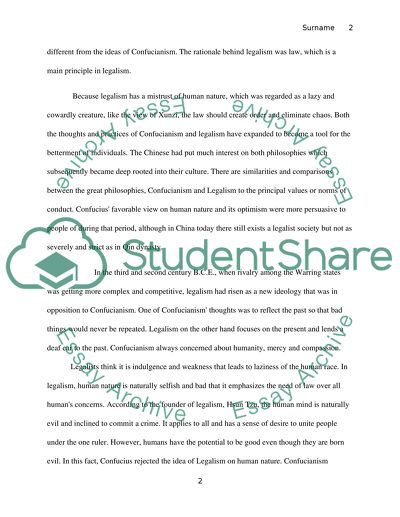Cite this document
(“What are fundamental points of conflict between Confucianism and Essay”, n.d.)
What are fundamental points of conflict between Confucianism and Essay. Retrieved from https://studentshare.org/philosophy/1591074-what-are-fundamental-points-of-conflict-between-confucianism-and-legalism-how-were-these-ways-of-thought-blended-into-the-chinese-theory-of-empire
What are fundamental points of conflict between Confucianism and Essay. Retrieved from https://studentshare.org/philosophy/1591074-what-are-fundamental-points-of-conflict-between-confucianism-and-legalism-how-were-these-ways-of-thought-blended-into-the-chinese-theory-of-empire
(What Are Fundamental Points of Conflict Between Confucianism and Essay)
What Are Fundamental Points of Conflict Between Confucianism and Essay. https://studentshare.org/philosophy/1591074-what-are-fundamental-points-of-conflict-between-confucianism-and-legalism-how-were-these-ways-of-thought-blended-into-the-chinese-theory-of-empire.
What Are Fundamental Points of Conflict Between Confucianism and Essay. https://studentshare.org/philosophy/1591074-what-are-fundamental-points-of-conflict-between-confucianism-and-legalism-how-were-these-ways-of-thought-blended-into-the-chinese-theory-of-empire.
“What Are Fundamental Points of Conflict Between Confucianism and Essay”, n.d. https://studentshare.org/philosophy/1591074-what-are-fundamental-points-of-conflict-between-confucianism-and-legalism-how-were-these-ways-of-thought-blended-into-the-chinese-theory-of-empire.


